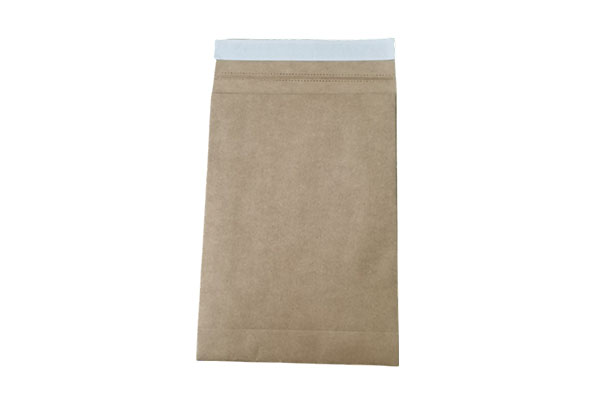How do envelopes work in the logistics industry?
Release Time : 2025-04-02
Envelopes play multiple roles in the logistics industry, and their design and functional characteristics make them an important tool for ensuring the safety of goods, improving logistics efficiency, and promoting cultural exchanges.
1. Protect the safety of goods
Waterproof and moisture-proof: High-quality envelopes are usually made of waterproof materials to ensure that goods are not affected in humid environments, which is particularly important in cross-border transportation because the climatic conditions in different countries vary greatly.
Impact resistance: Envelopes need to have a certain impact resistance to cope with bumps and vibrations in logistics transportation, thereby protecting goods from damage.
Strong durability: Cross-border logistics transportation often requires a long and complicated journey, so envelopes are required to have high durability to ensure the safety of goods throughout the transportation process.
2. Improve logistics efficiency
Easy to sort and distribute: Envelopes are usually printed with clear identification and classification information, which helps customs inspection, logistics sorting and distribution, and reduces error rates and delays.
Convenient opening and closing design: The opening and closing design of the envelope (such as self-sealing, zipper, etc.) facilitates the placement and inspection of goods, and improves the efficiency of logistics operations.
3. Promote cultural exchanges
Show culture and customs: As one of the carriers of cultural exchanges, the design of envelope can reflect the culture and customs of a country. Through a well-designed envelope, overseas consumers can better understand China's culture and product characteristics and enhance brand appeal.
Enhance brand image: In the field of cross-border e-commerce, exquisite packaging envelopes can enhance consumers' shopping experience, increase brand favorability, and thus enhance brand image and market competitiveness.
4. Environmental protection and sustainability
Environmentally friendly materials: With the improvement of global environmental awareness, more and more companies have begun to pay attention to environmentally friendly packaging. Envelopes made of recyclable and degradable materials are increasingly used in the logistics industry, which helps to reduce environmental pollution and resource waste.
Reduce packaging waste: The design of envelopes is usually compact and easy to handle, which helps to reduce the generation of packaging waste and reduce the negative impact on the environment.
5. Wide application scenarios
E-commerce field: In the field of cross-border e-commerce, envelope is the last checkpoint for goods to reach consumers, and its importance is self-evident.
Other industries: In addition to the e-commerce field, envelope is also widely used in real estate, hotels, catering, baking, automobiles and other industries to load and deliver various documents and items.
In summary, envelope plays a vital role in the logistics industry. Its characteristics of protecting cargo safety, improving logistics efficiency, promoting cultural exchanges, and environmental protection and sustainability make it an indispensable and important tool in the logistics industry.
1. Protect the safety of goods
Waterproof and moisture-proof: High-quality envelopes are usually made of waterproof materials to ensure that goods are not affected in humid environments, which is particularly important in cross-border transportation because the climatic conditions in different countries vary greatly.
Impact resistance: Envelopes need to have a certain impact resistance to cope with bumps and vibrations in logistics transportation, thereby protecting goods from damage.
Strong durability: Cross-border logistics transportation often requires a long and complicated journey, so envelopes are required to have high durability to ensure the safety of goods throughout the transportation process.
2. Improve logistics efficiency
Easy to sort and distribute: Envelopes are usually printed with clear identification and classification information, which helps customs inspection, logistics sorting and distribution, and reduces error rates and delays.
Convenient opening and closing design: The opening and closing design of the envelope (such as self-sealing, zipper, etc.) facilitates the placement and inspection of goods, and improves the efficiency of logistics operations.
3. Promote cultural exchanges
Show culture and customs: As one of the carriers of cultural exchanges, the design of envelope can reflect the culture and customs of a country. Through a well-designed envelope, overseas consumers can better understand China's culture and product characteristics and enhance brand appeal.
Enhance brand image: In the field of cross-border e-commerce, exquisite packaging envelopes can enhance consumers' shopping experience, increase brand favorability, and thus enhance brand image and market competitiveness.
4. Environmental protection and sustainability
Environmentally friendly materials: With the improvement of global environmental awareness, more and more companies have begun to pay attention to environmentally friendly packaging. Envelopes made of recyclable and degradable materials are increasingly used in the logistics industry, which helps to reduce environmental pollution and resource waste.
Reduce packaging waste: The design of envelopes is usually compact and easy to handle, which helps to reduce the generation of packaging waste and reduce the negative impact on the environment.
5. Wide application scenarios
E-commerce field: In the field of cross-border e-commerce, envelope is the last checkpoint for goods to reach consumers, and its importance is self-evident.
Other industries: In addition to the e-commerce field, envelope is also widely used in real estate, hotels, catering, baking, automobiles and other industries to load and deliver various documents and items.
In summary, envelope plays a vital role in the logistics industry. Its characteristics of protecting cargo safety, improving logistics efficiency, promoting cultural exchanges, and environmental protection and sustainability make it an indispensable and important tool in the logistics industry.





